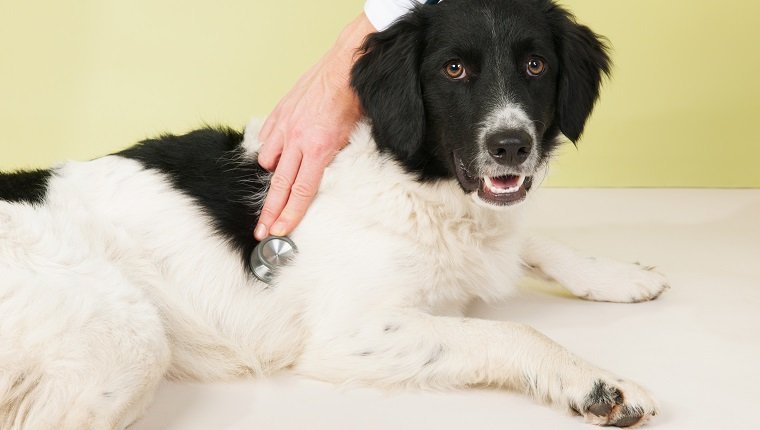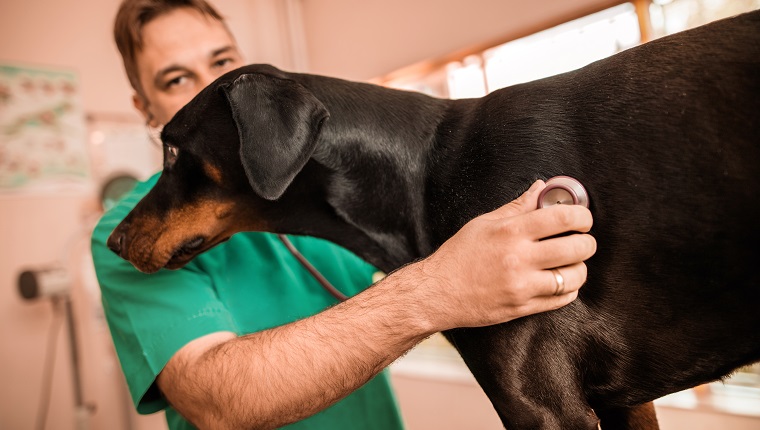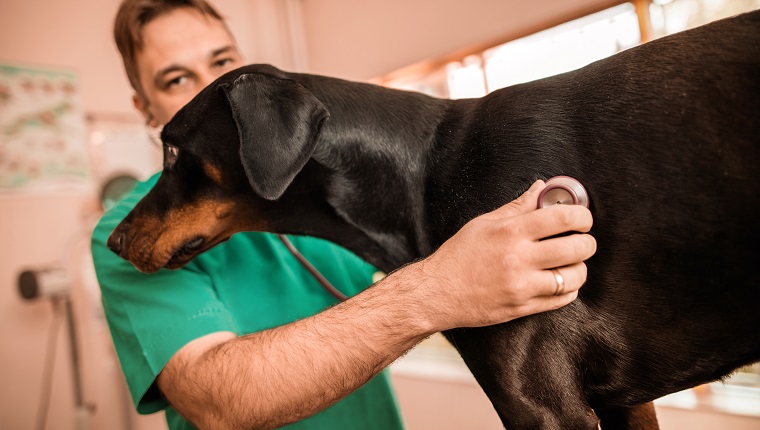
Cardiomyopathy in dogs is a condition where the heart muscle degenerates and the heart becomes enlarged. When the muscle degenerates, the heart stops functioning properly, and this can lead to congestive heart failure.
Cardiomyopathy is most common in large dogs, and it’s the leading cause of heart failure in certain large breeds. Symptoms may not appear in some dogs or may appear very suddenly and can include shortness of breath, weakness, collapse, or even sudden death.
If your dog is at risk or showing symptoms, consult your veterinarian immediately so they can form a proper diagnosis and begin treatment. Here’s what you should know about the symptoms, causes, and treatments for cardiomyopathy in dogs.
Symptoms Of Cardiomyopathy In Dogs

Symptoms of cardiomyopathy in dogs can vary. Some dogs don’t show symptoms until the condition gets worse, and some dogs suddenly collapse or die.
It’s important to have regular check-ups with your vet because they may find heart problems in their early stages during an exam and begin treatment.
Here are some of the symptoms you might see in dogs with cardiomyopathy:
- Shortness of breath or rapid breathing
- Lethargy
- Coughing
- Distended abdomen
- Loss of consciousness
- Blue tongue
- Excessive drooling
- Exercise intolerance
- Heart murmur
Causes Of Cardiomyopathy In Dogs

The causes of cardiomyopathy in dogs are mostly unknown or highly debated, but there are a few factors that put dogs more at risk for developing the condition.
The risk increases with age, and usually the condition affects dogs between four and ten years old. It also affects male dogs more often than females.
Evidence suggests that taurine deficiency or carnitine deficiency may contribute to the condition, too.
Certain breeds, especially larger dogs, are more at risk, as well. Cardiomyopathy is more common in:
- Afghan Hounds
- Boxers
- Doberman Pinschers
- German Shepherds
- Great Danes
- Irish Wolfhounds
- Labrador Retrievers
- Newfoundlands
- Saint Bernards
- Scottish Deerhounds
- Cocker Spaniels
- Springer Spaniels
- Cavalier King Charles Spaniels
Treatments For Cardiomyopathy In Dogs

A combination of drugs are typically used in the treatment of cardiomyopathy in dogs. Vets use diuretics to remove excess fluid from the body, especially fluid that has accumulated in the lungs.
Vets may also prescribe enzyme inhibitors to reduce blood pressure and prevent the heart from getting overworked. Vasodilators — drugs that dilate the arteries and veins — can also help the heart not have to work so hard to pump blood throughout the body.
Vets may rely on bronchodilators to make it easier for dogs to breathe. They may prescribe other drugs, as well, so if your vet diagnoses your dog with cardiomyopathy, follow their instructions closely.
The goal of treatment is to reduce the risk of congestive heart failure. Some dogs respond well to medication while others do not, though beginning treatment in the early stages of the disease tends to help.
Cardiomyopathy is a serious condition, and dogs who have it will need to be monitored. The prognosis is usually not good, though your vet will be able to give you more information about your individual dog if they are diagnosed with the condition.
Do you keep up with regular vet visits to find medical issues early? How do you keep your dog’s heart healthy? Let us know in the comments below!









